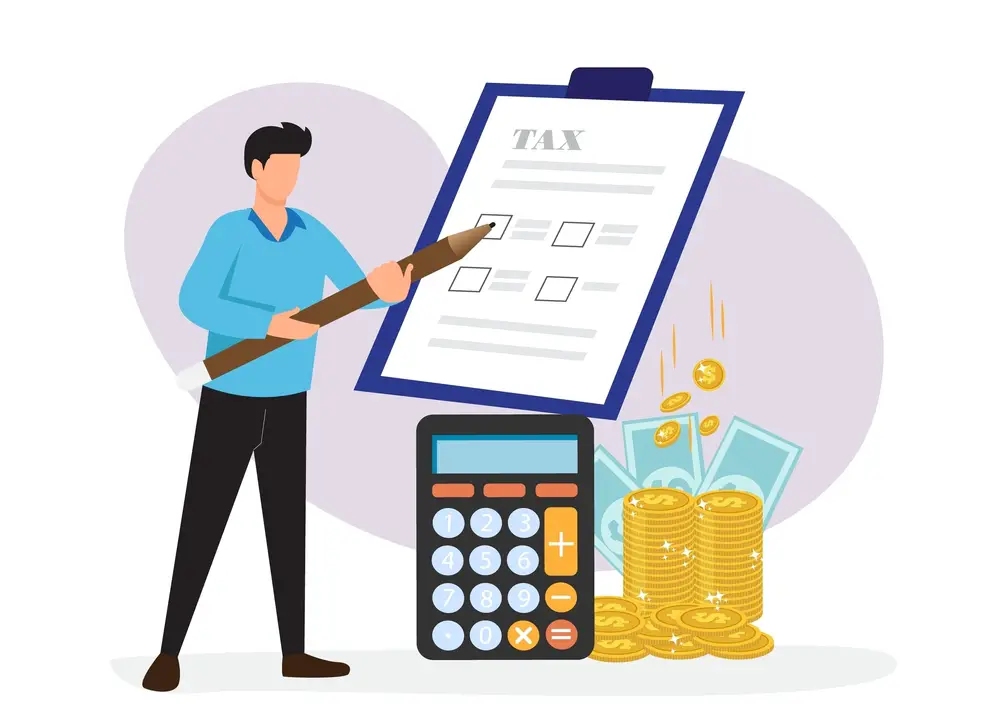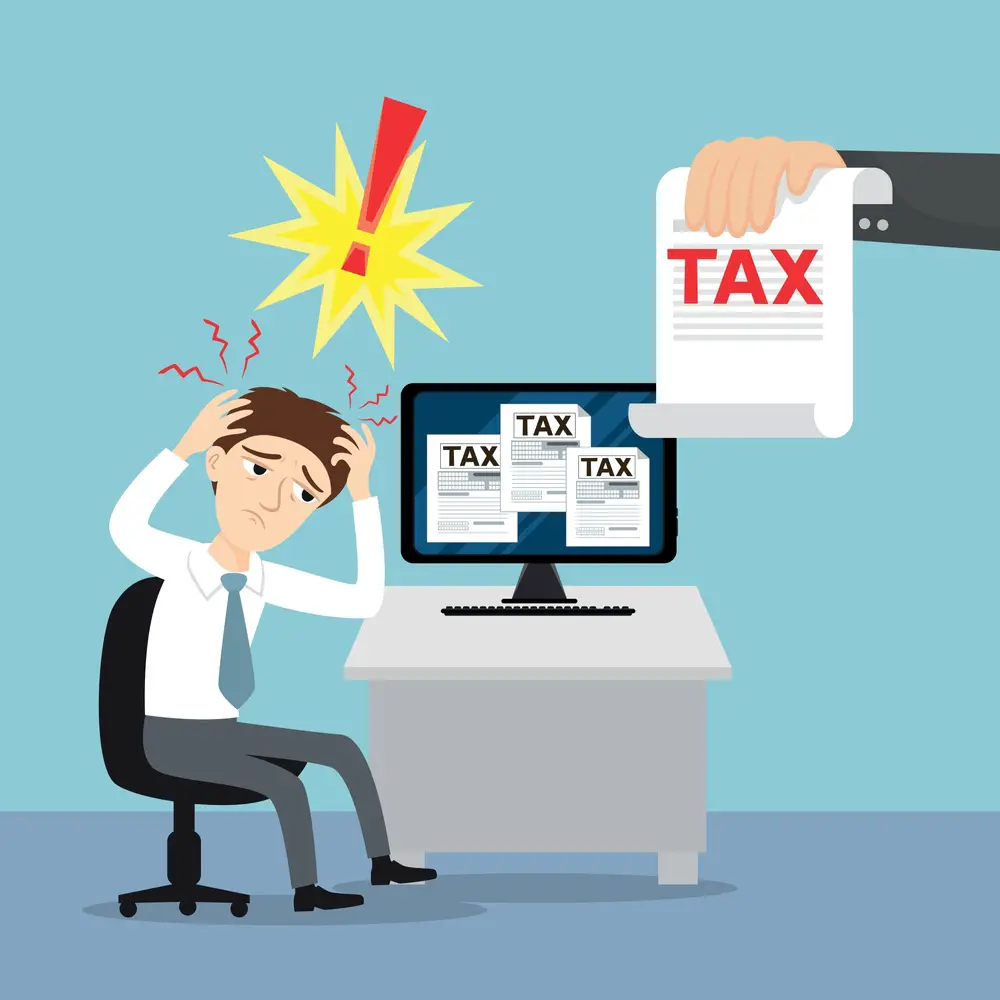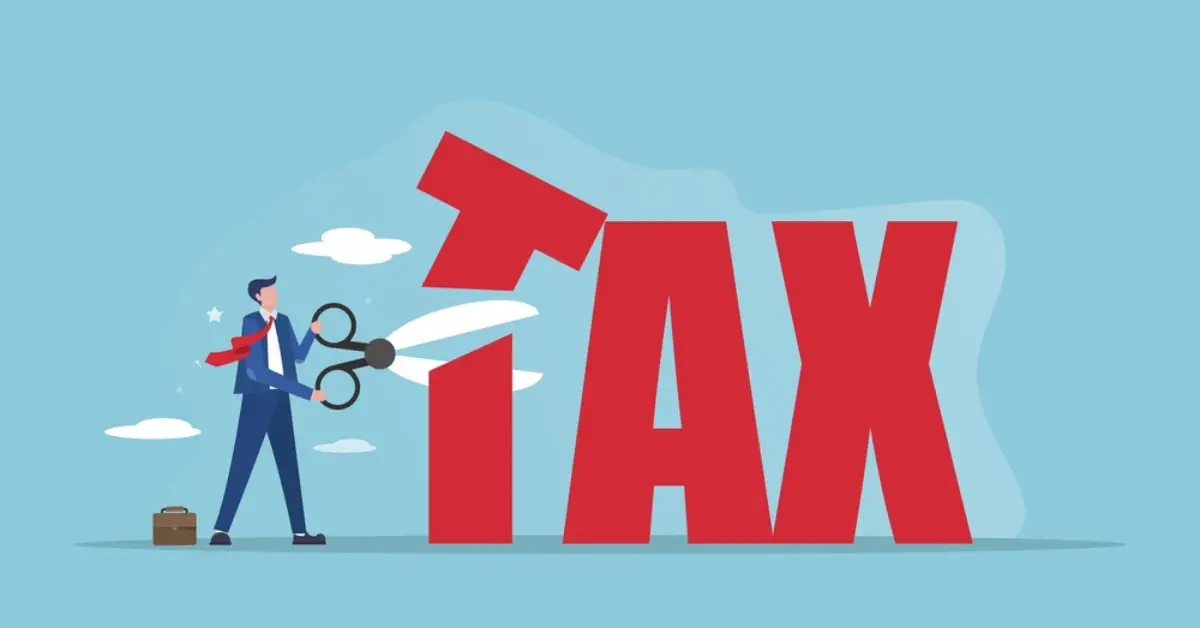Freelancing can be incredibly rewarding. You’re your own boss, you set your own hours, and you get to work on projects you’re passionate about. But with that freedom comes the responsibility of managing your own taxes—a task that can feel overwhelming if you’re not prepared. Fortunately, there are plenty of strategies to help you save on taxes and keep more of your hard-earned money in your pocket.
Understanding Your Tax Obligations as a Freelancer

First things first: as a freelancer, your tax situation is quite different from that of a traditional employee. When you work for a company, your employer handles the tax withholdings and pays half of your Social Security and Medicare taxes.
But as a freelancer, you’re considered self-employed, which means you’re responsible for paying both the employee and employer portions of those taxes. This is known as the self-employment tax, and it’s one of the biggest financial obligations freelancers face.
What is Self-Employment Tax?
Let’s dive into what self-employment tax actually entails. The self-employment tax rate is currently set at 15.3%, which is divided into two parts: 12.4% for Social Security and 2.9% for Medicare. This might seem steep, especially when you
realize that you’re paying both sides of the tax—something traditional employees don’t have to worry about. In addition to the self-employment tax, you’re also responsible for paying federal income tax, which is based on your taxable income. Depending on where you live, you may also owe state and local taxes.
But don’t let these numbers scare you off. Understanding how these taxes work is the first step to figuring out how to reduce them.
How to Calculate Your Tax Rate
Knowing your tax rate is crucial for budgeting throughout the year. Your tax rate includes your self-employment tax, federal income tax, and possibly state income tax, depending on your location.

To calculate your tax rate, start with your net income—that’s your total income after deducting business expenses. Once you know your net income, you can apply the self-employment tax rate and your federal income tax rate.
For example, if your net income is $50,000, you’ll owe approximately $7,650 in self-employment tax (15.3% of $50,000). Then, add your federal income tax, which could range from 10% to 37%, depending on your total taxable income and filing status.
A good rule of thumb is to set aside about 25% to 30% of your income for taxes, but this can vary based on your specific situation. It’s always better to overestimate your tax liability and have a little extra left over than to underestimate and face a hefty bill come tax time.
Track Every Expense—No Exceptions
One of the best ways to reduce your tax burden is to track every business expense. Why? Because every dollar you spend on your business can potentially be deducted from your taxable income, lowering the amount of money you owe to the IRS.
Why Tracking Expenses Matters
Imagine this: you’re sipping on your morning coffee at a cozy café, working on a client project. That coffee you just bought? It might be tax-deductible. The subscription you pay for your graphic design software?
Also deductible. The key is to track every expense, no matter how small it may seem. Over time, these small expenses add up, and by the end of the year, they could save you a significant amount on your taxes.
Tracking expenses isn’t just about saving money, though. It’s also about protecting yourself in case of an audit.
The IRS requires that you have detailed records to support your deductions, so make sure you keep receipts, invoices, and any other documentation related to your business expenses.
Also Read – How to File Taxes Online in the US
Essential Tools for Expense Tracking
Gone are the days of stuffing receipts into shoeboxes. Today, there are plenty of digital tools that can help you track your expenses efficiently.
QuickBooks and FreshBooks are popular accounting software options that allow you to categorize expenses, generate reports, and even track mileage—all of which can be useful when it’s time to file your taxes.
If you prefer something simpler, even a Google Sheet can do the trick. The important thing is to be consistent and thorough in your tracking.
Maximize Your Tax Deductions
Now that you’re tracking your expenses, let’s talk about deductions. Deductions are specific expenses that you can subtract from your total income to reduce your taxable income.
The lower your taxable income, the less you owe in taxes. So, it’s in your best interest to take advantage of every deduction available to you.
Home Office Deduction Explained
One of the most valuable deductions for freelancers is the home office deduction. If you use a portion of your home exclusively for business, you can deduct a portion of your rent or mortgage, utilities, and even your internet bill. The key word here is “exclusively.”
Your home office doesn’t have to be a separate room, but it does need to be a dedicated space where you conduct your business. For example, if you use a spare bedroom as your office, you can deduct the percentage of your home’s square footage that the office occupies.
There are two methods for calculating the home office deduction: the simplified method and the regular method. The simplified method allows you to deduct $5 per square foot of your home office, up to a maximum of 300 square feet.
The regular method requires you to calculate the actual expenses related to your home office, based on the percentage of your home used for business. Both methods have their pros and cons, so it’s worth running the numbers to see which one saves you more money.
Deducting Business-Related Travel
Freelancers often need to travel for work, whether it’s attending conferences, meeting clients, or scouting new opportunities. The good news is that many of these travel expenses are tax-deductible.
This includes airfare, hotel stays, meals, and even transportation to and from the airport. However, there are a few caveats. The travel must be directly related to your business, and you need to keep detailed records, including receipts and the purpose of the trip.
It’s also worth noting that if your trip combines both business and personal activities, you can only deduct the portion of the expenses related to business.
For example, if you attend a two-day conference in New York and then spend three days sightseeing, you can only deduct the expenses for the conference days.
Health Insurance Deduction
Health insurance is a significant expense for freelancers, especially those who don’t have access to employer-sponsored plans. The good news is that you can deduct the cost of your health insurance premiums on your tax return.
This includes premiums for yourself, your spouse, and your dependents. This deduction is taken “above the line,” meaning it reduces your adjusted gross income, which can lower your overall tax liability.
Self-Employed Health Insurance Credit
In addition to the health insurance deduction, there’s also a tax credit available for certain low-to-moderate-income freelancers who purchase insurance through the marketplace.
This credit, known as the Premium Tax Credit, can help offset the cost of your health insurance premiums. However, eligibility for this credit depends on your income and family size, so it’s essential to check if you qualify.
Retirement Savings Contributions
As a freelancer, you don’t have the luxury of an employer-sponsored 401(k), but that doesn’t mean you should neglect retirement savings. In fact, contributing to a retirement account can reduce your taxable income while helping you build a nest egg for the future.
SEP IRA vs. Solo 401(k): Which Is Better?
Two of the most popular retirement savings options for freelancers are the SEP IRA and the Solo 401(k). Both offer significant tax advantages, but they have different rules and contribution limits.
A SEP IRA is easier to set up and allows you to contribute up to 25% of your net earnings, with a maximum contribution limit of $66,000 for 2024. On the other hand, a Solo 401(k) lets you contribute both as an employee and an employer, potentially allowing for higher contributions—up to $66,000 in 2024, or $73,500 if you’re 50 or older.
So, which one is better? It depends on your income and retirement goals. If you’re looking for simplicity, the SEP IRA might be the way to go. But if you want to maximize your contributions, a Solo 401(k) could be more beneficial.
Also Read – Top Cryptocurrency Trends to Watch in the US Market
Quarterly Estimated Taxes: Don’t Get Caught Off Guard
As a freelancer, you’re required to pay taxes on a quarterly basis. These payments are estimates of what you owe for the year, divided into four parts. If you’re not used to this system, it can be easy to forget about these payments or underestimate how much you owe—both of which can lead to penalties.
How to Estimate Your Quarterly Taxes
Estimating your quarterly taxes can be tricky, especially if your income fluctuates throughout the year. One approach is to use last year’s tax return as a guide, adjusting for any changes in your income or deductions. Alternatively, you can use online calculators to help estimate what you’ll owe.
It’s also a good idea to set aside a portion of your income for taxes each month, so you’re not scrambling to come up with the money when quarterly payments are due.
The Penalties for Missing Payments
Missing a quarterly payment can result in penalties, which are essentially interest charges on the amount you didn’t pay. The IRS calculates these penalties based on how much you underpaid and how late the payment was. To avoid penalties, it’s important to stay on top of your quarterly tax payments.
Set reminders for payment deadlines and make sure you have enough setaside to cover your estimated taxes. Even if you overestimate a bit, it’s better to have some extra cash at the end of the year than to owe more than you expected.
Hire a Tax Professional (It’s Worth It!)
Given the complexities of the tax code and the numerous deductions and credits available to freelancers, hiring a tax professional can be one of the best investments you make.
Benefits of Working with a CPA
A Certified Public Accountant (CPA) who specializes in working with freelancers or small businesses can help you navigate the complexities of tax law, ensure you’re taking advantage of every possible deduction, and help with tax planning to minimize your liabilities in the future.
CPAs can also provide valuable advice on how to structure your business, whether it’s best to stay a sole proprietor or consider forming an LLC or S-Corp. Plus, in the event of an audit, having a CPA who prepared your return can be a huge relief.
How to Choose the Right Tax Professional
Not all CPAs or tax preparers are created equal. When choosing someone to handle your taxes, it’s important to find a professional who understands the unique challenges and opportunities that come with freelancing.

Look for a CPA with experience working with freelancers or small business owners. Ask for referrals, check online reviews, and don’t hesitate to ask questions about their approach to tax planning. It’s crucial to find someone you trust and feel comfortable working with, as they’ll be an important partner in your financial success.
The Importance of Keeping Detailed Records
Keeping detailed records is not just a good business practice—it’s a critical part of managing your taxes effectively and protecting yourself in case of an audit.
How Long Should You Keep Records?
The IRS generally recommends keeping tax records for at least three years from the date you filed your return. However, it’s wise to keep certain records for even longer. For instance, if you claim a loss from worthless securities or bad debt deduction, you should keep your records for seven years.
Property records, such as those related to the purchase and improvement of your home office space, should be kept for as long as you own the property, plus an additional three years after you sell it. And of course, keep a copy of your tax returns indefinitely.
What Records to Keep
So, what exactly should you keep? At a minimum, you should maintain records of all your income and expenses, including receipts, invoices, bank and credit card statements, canceled checks, and any other documents that support the income and deductions on your tax return.
This also includes digital records, so make sure you have a reliable backup system in place. Cloud storage services like Google Drive, Dropbox, or even an external hard drive can help ensure your records are safe in case of a computer crash.
Consider Forming an LLC
As your freelance business grows, you may want to consider forming an LLC (Limited Liability Company). Not only can this provide legal protection for your personal assets, but it can also offer some tax advantages.
How an LLC Can Save You Money
One of the main reasons freelancers choose to form an LLC is for the potential tax savings. When you operate as an LLC, you can elect to be taxed as an S-Corporation. This allows you to split your income into a reasonable salary and dividends.
The salary is subject to self-employment tax, but the dividends are not, potentially saving you a significant amount on your taxes. Additionally, as an LLC, you may be eligible for more deductions and may find it easier to separate your personal and business finances, which simplifies record-keeping.
Tax Implications of an LLC
It’s important to understand that forming an LLC does come with additional responsibilities, including the need to file separate tax returns for your business and potentially pay state LLC fees or taxes. You’ll also need to pay yourself a reasonable salary, which the IRS scrutinizes closely. But for many freelancers, the potential tax savings and legal protection make the LLC structure worthwhile.
Understanding State-Specific Tax Rules
Taxes in the US vary significantly from state to state, so it’s crucial to understand the rules that apply to you.
State Income Taxes
If you live in a state that has its own income tax, you’ll need to file a state tax return in addition to your federal return. State tax rates can range from a flat percentage of your income to a more complex system with multiple tax brackets, similar to the federal tax system.
Some states, like Texas and Florida, don’t have state income taxes, which can be a big advantage for freelancers in those states.
State Sales Taxes and Use Taxes
In addition to state income tax, you may also be responsible for collecting and remitting sales tax if you sell products or certain types of services. Each state has its own rules about what’s taxable, so it’s important to research the specific requirements in your state.
Use tax is another consideration—it’s a tax on goods purchased out of state for use within your state, which you’re required to pay if sales tax wasn’t collected at the time of purchase.
Avoiding Common Tax Mistakes
Even with the best intentions, it’s easy to make mistakes when managing your taxes. Here are some common pitfalls to avoid.

Misclassifying Income
One of the most common mistakes freelancers make is misclassifying income. It’s important to correctly report all income you receive from your freelance work.
Failing to report income can lead to penalties and interest charges, as well as trigger an audit. Be sure to keep track of all your income sources and report them accurately on your tax return.
Not Setting Aside Enough Money for Taxes
It’s easy to fall into the trap of spending your income as it comes in, only to find yourself short when it’s time to pay your quarterly taxes. To avoid this, set aside a portion of each payment you receive—typically around 25% to 30%—for taxes. This will help ensure you have enough to cover your tax liability when quarterly payments are due.
Failing to File on Time
Missing tax deadlines can result in penalties and interest charges that can quickly add up. The IRS requires that you file your tax return by April 15th each year, and quarterly estimated tax payments are due on April 15th, June 15th, September 15th, and January 15th of the following year.
If you’re unable to file your tax return on time, be sure to file for an extension to avoid penalties. However, remember that an extension to file is not an extension to pay—any taxes owed are still due by the original filing deadline.
Conclusion
Managing taxes as a freelancer may seem daunting, but with a little planning and organization, it’s entirely manageable. By understanding your tax obligations, keeping meticulous records, taking advantage of deductions, and considering the benefits of forming an LLC, you can minimize your tax liability and keep more of your hard-earned money.
And remember, when in doubt, it’s always worth consulting with a tax professional who can guide you through the process and help you avoid costly mistakes.
Freelancing offers the freedom to work on your own terms, and with the right tax strategies in place, you can enjoy that freedom without the stress of unexpected tax bills.
FAQs
What are the benefits of forming an LLC as a freelancer?
Forming an LLC can provide legal protection for your personal assets and may offer tax advantages, such as the ability to elect S-Corp status and save on self-employment taxes. However, it also comes with additional responsibilities, so it’s important to weigh the pros and cons before making a decision.
What expenses can I deduct as a freelancer?
You can deduct any expense that is considered ordinary and necessary for your business. This includes things like office supplies, software, travel expenses, health insurance, and even a portion of your rent or mortgage if you work from home.
Do I have to pay quarterly estimated taxes?
Yes, as a freelancer, you’re required to pay taxes on a quarterly basis. These are estimated payments based on what you expect to owe for the year, and they help you avoid penalties for underpayment when you file your annual tax return.
Can I deduct the cost of a home office?
Yes, if you use a portion of your home exclusively for business, you can deduct a portion of your rent or mortgage, utilities, and other related expenses. Just be sure to keep detailed records and calculate the deduction accurately.


2 thoughts on “Tips for Saving on Taxes as a Freelancer in the US”